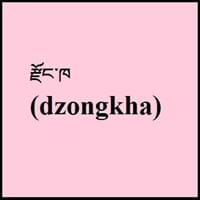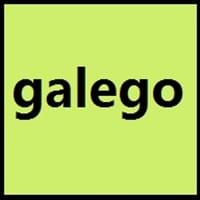Dzongkha and Galician
National Language
Bhutan
Galicia
Second Language
India
Not spoken in any of the countries
Speaking Continents
Asia
Europe
Minority Language
India
Not spoken in any of the countries
Regulated By
Dzongkha Development Commission
Royal Galician Academy (Real Academia Galega)
Interesting Facts
- Standard romanization of the Dzongkha language is Roman Dzongkha.
- In Galician language, there are no compound tenses.
- The earliest document in Galician language was written in 1228 which was legal charter for a municipality of Galicia.
Similar To
Sikkimese Language
Portuguese Language
Derived From
Tibetan Language
Latin
Alphabets in
Dzongkha-Alphabets.jpg#200
Galician-Alphabets.jpg#200
Scripts
Dzongkha Braille, Tibetan Braille
Latin
Writing Direction
Not Available
Left-To-Right, Horizontal
Thank You
Kaadinchhey La
Grazas
How Are You?
Ga Day Bay Zhu Yoe Ga ?
Que tal estás?
Good Night
lek shom ay zim
Boas noites
Good Evening
Not Available
Boa tarde
Good Afternoon
Not Available
Boa tarde
Good Morning
Not Available
Bos días
Please
Not Available
Por favor
I Love You
Nga cheu lu ga
Ámote
Excuse Me
Tsip maza
Perdoe!
Dialect 1
Laya
Eastern Galician
Where They Speak
Bhutan
East Galicia
How Many People Speak
Not Available
Dialect 2
Lunana
Central Galician
Where They Speak
Bhutan
Central Galicia
How Many People Speak
Not Available
Dialect 3
Adap
Western Galician
Where They Speak
Bhutan
West Galicia
Total No. Of Dialects
Not Available
Speaking Population
Not Available
Not Available
Second Language Speakers
Not Available
Native Name
རྫོང་ཁ (dzongkha)
Galego
Alternative Names
Bhotia of Bhutan, Bhotia of Dukpa, Bhutanese, Drukha, Drukke, Dukpa, Jonkha, Rdzongkha, Zongkhar
Galego, Gallego
French Name
dzongkha
galicien
German Name
Dzongkha
Galicisch
Pronunciation
Not available
[ɡaˈleɣo]
Ethnicity
Ngalop people
Not Available
Origin
17th Century
c. 1175
Language Family
Sino-Tibetan Family
Indo-European Family
Subgroup
Not Available
Not Available
Branch
Tibeto-Burman
Not Available
Early Forms
No early forms
Medieval Galician
Standard Forms
Dzongkha
Galician
Signed Forms
Not Available
Not Available
Scope
Individual
Individual
ISO 639 6
Not Available
Not Available
Glottocode
nucl1307
gali1258
Linguasphere
No data Available
51-AAA-ab
Language Type
Living
Living
Language Linguistic Typology
Not Available
Not Available
Language Morphological Typology
Not Available
Not Available
All Dzongkha and Galician Dialects
Most languages have dialects where each dialect differ from other dialect with respect to grammar and vocabulary. Here you will get to know all Dzongkha and Galician dialects. Various dialects of Dzongkha and Galician language differ in their pronunciations and words. Dialects of Dzongkha are spoken in different Dzongkha Speaking Countries whereas Galician Dialects are spoken in different Galician speaking countries. Also the number of people speaking Dzongkha vs Galician Dialects varies from few thousands to many millions. Some of the Dzongkha dialects include: Laya, Lunana. Galician dialects include: Eastern Galician , Central Galician. Also learn about dialects in South American Languages and North American Languages.
Dzongkha and Galician Speaking population
Dzongkha and Galician speaking population is one of the factors based on which Dzongkha and Galician languages can be compared. The total count of Dzongkha and Galician Speaking population in percentage is also given. The percentage of people speaking Dzongkha language is Not Available whereas the percentage of people speaking Galician language is Not Available. When we compare the speaking population of any two languages we get to know which of two languages is more popular. Find more details about how many people speak Dzongkha and Galician on Dzongkha vs Galician where you will get native speakers, speaking population in percentage and native names.
Dzongkha and Galician Language Codes
Dzongkha and Galician language codes are used in those applications where using language names are tedious. Dzongkha and Galician Language Codes include all the international language codes, glottocodes and linguasphere.





